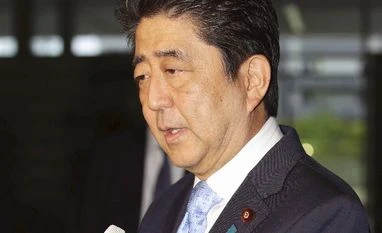The whole world confronts an unprecedented, grave and imminent threat from North Korea. On Sept. 3, the regime carried out a reprehensible nuclear test. Late last week, it launched a ballistic missile over my country, Japan, only two weeks after a similar missile launch. By repeatedly testing missiles — in violation of United Nations Security Council resolutions — Pyongyang has shown its reach now extends to the United States and Europe.
North Korea’s actions are an outright challenge to the international community. On Sept. 11, the United Nations Security Council unanimously adopted a resolution on a new round of strict sanctions that restrict member states from selling oil to the North, ban North Korean textile exports and ban member states from authorizing North Koreans to work abroad.
They are an important step, but the leadership in Pyongyang has consistently ignored previous resolutions. The international community must stay united and enforce the sanctions.
Here in northeast Asia, the North Korean threat has been real for more than a quarter-century. We face the threat of missiles — short and medium range — together with the possibility of chemical weapons attacks.
North Korea has targeted Japan in particular by abducting many innocent Japanese citizens, including a 13-year-old girl who was abducted in 1977. Most of them have been held in North Korea since the 1970s and 1980s.
Everyone aspires to a peaceful solution to these challenges. And global solidarity is of utmost importance. Still, prioritizing diplomacy and emphasizing the importance of dialogue will not work with North Korea. History shows that concerted pressure by the entire international community is essential.
In the early 1990s, North Korea’s announcement to withdraw from the Nuclear Nonproliferation Treaty and the International Atomic Energy Agency was a wake-up call. In response, Japan, the United States and South Korea engaged in dialogue with North Korea and agreed to construct two light-water reactors and to provide heavy fuel oil in exchange for freezing and ultimately dismantling its nuclear program. Japan, the United States and South Korea shouldered most of the financial burden, with the cooperation of Europe and other Asian countries.
We know what happened next: Several years after the heavy fuel oil was delivered and construction started on the light-water reactors, North Korea admitted to having a uranium enrichment program in violation of the agreement.
By the end of 2002, North Korea expelled I.A.E.A. inspectors, followed by an official withdrawal from the NPT in 2003. China and Russia then joined Japan, the United States and South Korea to create the six-party talks with the North. Pyongyang again agreed to the verifiable denuclearization of the Korean Peninsula. But instead, it declared itself a nuclear power in 2005 and carried out a nuclear test in 2006. The five countries’ attempt to solve the problem through dialogue failed.
In short, while the international community provided North Korea with sanctions relief and support as “compensation” for its pledges, the regime ignored most of its commitments.
Considering this history and its continuing missile launches and nuclear tests, more dialogue with North Korea would be a dead end. Pyongyang would see more talks as proof that other countries succumbed to the success of its missile launches and nuclear tests. Now is the time to exert the utmost pressure on the North. There should be no more delays.
How could North Korea relentlessly pursue missile development and nuclear tests over almost half a century? How could North Korea, under successive United Nations sanctions for a decade, acquire enormous resources to obtain crude materials, components and powerful engines? Statistics show that there are countries, mainly in Asia, that continue trading with North Korea; and for some, as recently as in 2016, their trade even exceeded that of the previous year. According to the United Nations, foreign-made parts have been used in North Korea’s ballistic missiles. There are countries buying products and services from North Korea or accepting its workers. Front companies established in Asia enable North Korea access to foreign currencies.
Japan has responded by reaffirming the ironclad Japan-United States alliance, and Japan has coordinated in lock step with the United States and South Korea. I firmly support the United States position that all options are on the table.
As a response to the latest nuclear test, I value the swift and unanimous adoption of Security Council Resolution 2375 on Sept. 11, which puts significantly tougher sanctions on North Korea. But I stress that we must not be simply complacent with the adoption of these sanctions. We must thoroughly enforce the successive resolutions in order to prevent North Korea from obtaining the goods, technologies, funds and people to further develop its missiles and nuclear program.
North Korea poses a serious threat and challenge to our world, and its actions flout the international nonproliferation regime. As swiftly as possible, we must make North Korea end its provocations, abandon its nuclear and ballistic missile development, and return the abductees in North Korea to their homes.
Solidarity and concerted effort among the international community, together with the effective role of the United Nations, are more vital than ever.
©2017 The New York Times News Service
Unlock 30+ premium stories daily hand-picked by our editors, across devices on browser and app.
Pick your 5 favourite companies, get a daily email with all news updates on them.
Full access to our intuitive epaper - clip, save, share articles from any device; newspaper archives from 2006.
Preferential invites to Business Standard events.
Curated newsletters on markets, personal finance, policy & politics, start-ups, technology, and more.
)